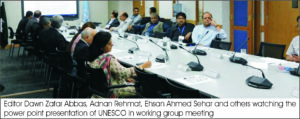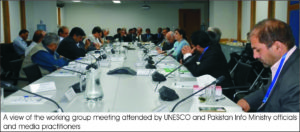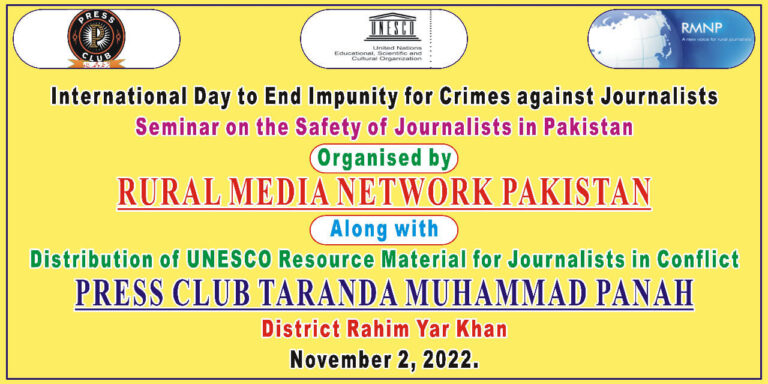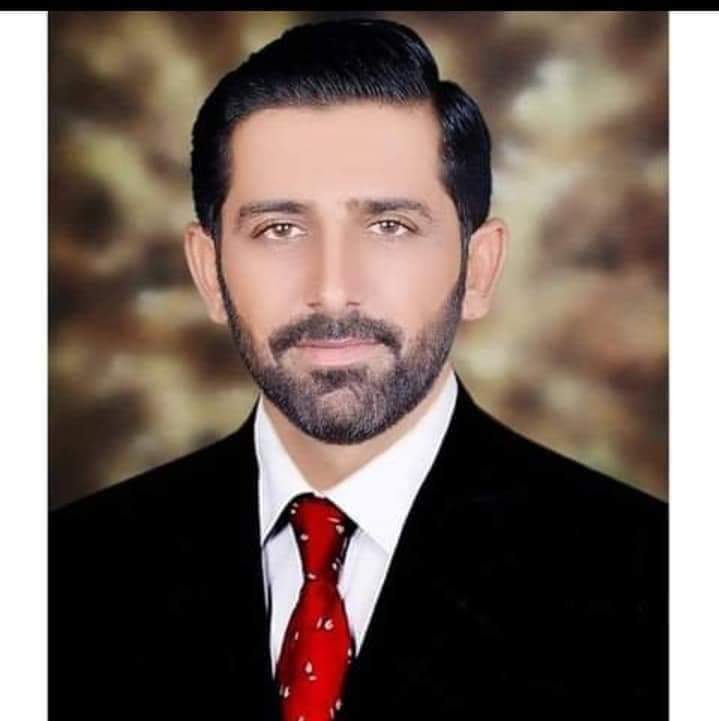Pakistan round table opens door for information sharing on safety of journalists October 27, 2016
Islamabad. A meeting of 20 experts from government, civil society and media in Islamabad on 27 October has identified an opportunity for NGOs to feed their research on journalistic safety to the government of Pakistan to contribute to official statistics on the issue.The meeting was attended by seven media practitioners including President RMNP Ehsan Ahmed Sehar,Zafar Abbas Editor Daily Dawn, Owais Aslam Ali Secretary General PPF,Abdul Jabbar Khattak former General Secretary CPNE,Ms Sadaf Khan Executive Director Media Matters For Democracy,Adnan Rehmat Program Manager IMS and Iqbal Khattak Representative RSF. The meeting heard of a recent survey by UNESCO which showed five NGOs in Pakistan tracking safety and impunity of journalists, but only one of them currently sharing information with government.
Optimising information flows for domestic and international purposes was the subject of the lively meeting, convened as part of the global build up to the International Day to End Impunity for Crimes Against Journalists. The event was supported by UNESCO’s International Programme for the Development of Communication (IPDC), and co-convened with the Ministry of Information, Broadcasting and National Heritage. Co-chair of the meeting, along with UNESCO director for Pakistan Ms Vibeke Jensen, was Director General for Internal Publicity at the Ministry, Mr Nasir Jamal. He outlined what he described as the Government’s steps to “to put in place an effective framework for bringing to the justice the perpetrators of crime against media persons in Pakistan”.
A particular step that he announced during the discussion was the designation of the deputy director of press information department in the Ministry as the focal point for future information exchange with local NGOs monitoring journalists’ safety and impunity issues. Extracts of the 2016 Report by UNESCO’s Director General Irina Bokova were presented to participants in remarks by UNESCO Director for Freedom of Expression and Media Development, Guy Berger. “The Report shows that Pakistan is lagging behind at time of increasing number of countries that respond to UNESCO’s call for information on judicial follow-up in the cases of killed journalists,” said Berger. Of 51 killings of journalists recorded in Pakistan in the past 10 years, no information had been contributed in 35 cases, and data was last submitted in 2013. Berger added: “UNESCO stands ready to support efforts to build a system for improved information co-ordination, a gap that was also identified in the Pakistan Journalists’ Safety Indicators study published earlier this year.”
In his remarks, Mr Jamal described a committee set up in January 2015, and chaired by the Minister for Information, Broadcasting and National Heritage. Its mandate is to undertake effective coordination with the Provincial Governments along with Media representative bodies to assess the threat levels for the media, and provide necessary security cover to Journalists and media houses. “The most effective part of this mandate is introduction of panic alert button application as launched by Islamabad Capital Territory Police, and is being replicated at the Provincial Headquarters in order to extend prompt response to media persons and houses in security situations,” said Mr Jamal. There had so far been six meetings of Federal Government’s Media Security Committee, with attendance by several media organizations, he said. Decisions made by the committee included deployment of police guards in plain clothes around media houses, and the appointment of “focal persons from Provincial Police Departments to address all security related issues of media persons”. The Federal Government had also directed the provinces to constitute their own Media Security Committees, he stated.
The Pakistan director-general further suggested that information sharing trials should involve the Ministry of Law and Justice, and that a forum on the subject could be established under the supervision of Ministry of Foreign Affairs. Reporters Without Borders representative Iqbal Khattak said that there were “good news” stories about Government actions, including court
cases about impunity, which Pakistan could submit to UNESCO. President Rural Media Network Pakistan Ehsan Ahmed Sehar proposed to take Pakistan Bar Council and provincial bar councils on board to get speedy information about the follow up of the murder cases of slain Pakistani journalists.He shared RMNP experience in different nine cases and highlighted a case of English Daily Express Tribune journalist who was killed in Bahawalnagar in 2013.Though the court has announced its vedict but Pakistan govt did not share its out come to UNESCO despite the passage of one year. The Director-General’s Report will be discussed on 17 November in Paris by the Intergovernmental Council of IPDC. Pakistan is a member of the Council. Source.
Source:/ UNESCO/RMNP







